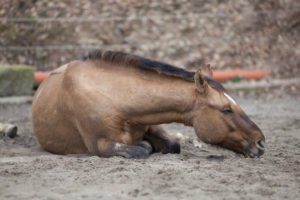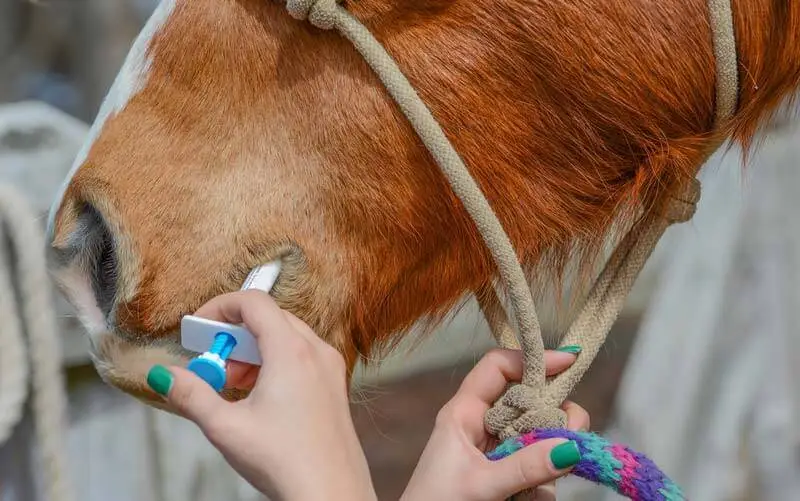What is colic and how do I prevent it?
There are many types of colic, each with its own causes, treatment and prevention. Generally, colic is defined as any abnormal gastrointestinal pain in horses. With careful management and a commitment to your horse’s health, colic may be prevented.
Causes of Colic
The horse has the most poorly designed digestive system out of any animal, which makes them highly susceptible to colic – from stomach distension to impaction colic. Unfortunately, this means even a simple change in feed can lead to colic if not managed correctly.
There are several common causes of colic, including:
- Ineffective worm control
- Sudden feed changes
- Dehydration
- Mouldy or tainted feed
- Dental problems or poor dental care
- High-grain, low-forage diets
- Prolonged use of NSAIDs
- Sand or dirt ingestion
- Stress
Signs of Colic
As a horse owner, it’s imperative that you’re familiar with your horse’s normal vital signs and behaviour. In some cases, horses may exhibit no outward signs at all, so the only indication of colic may be a variation in heart rate, respiratory rate or rectal temperature.
The most common signs of colic are:
- Pawing at the ground
- Looking around at the flank
- Frequently laying down and getting up
- Rolling
- Curling the upper lip
- Playing in the water trough, but not drinking
- Keeping the head to ground while walking in circles
- Increased heart rate or breathing rate
- Excessive sweating around the flanks or shoulders
- Loss of interest in food or water
The absence of gut sounds is serious and may also indicate colic.
Preventing Colic
There are several important horse management practices that will support your horse’s health and wellbeing, and aid in preventing colic. These are:
- Provide your horse with the three F’s daily – friends, forage and freedom
- Feed your horse at the same times each day and keep to this schedule
- Feed several smaller meals as opposed to one large meal
- Make gradual changes to your horse’s diet, including feed, hay and pasture
- Ensure your horse has unlimited access to fresh, clean drinking water daily
- Implement effective worming programs on your property
- Check feed storage regularly for signs of mould, vermin, etc.
- If respiratory issues are a concern, wet your horse’s feed prior to feeding
- Maintain dental health, including a dental examination at least once per year
- Utilise feed bins and buckets to avoid sand or dirt ingestion at feeding time




